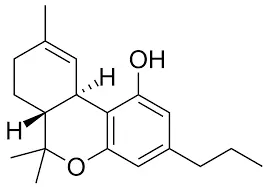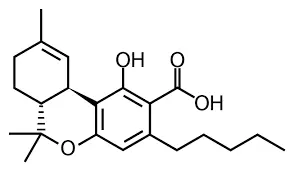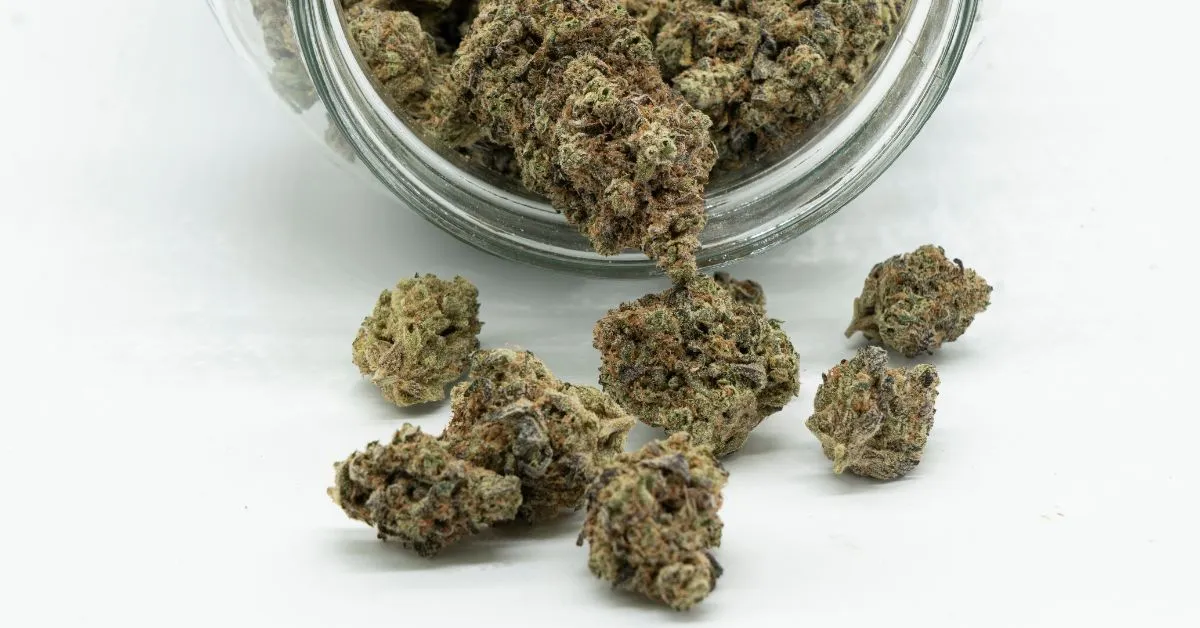We all know about THC (tetrahydrocannabinol), but what about THCV and THCA? These two lesser-known, but increasingly studied, cannabinoids are Tetrahydrocannabivarin (THCV) and Tetrahydrocannabinolic acid (THCA). These compounds offer distinct effects and potential health benefits that set them apart from traditional THC strains.
What is THCV?
Tetrahydrocannabivarin (THCV) is a cannabinoid with a structure similar to THC but with notable differences in its effects. Unlike THC, which is known for its psychoactive properties, THCV has a more complex interaction with the body’s endocannabinoid system.
This cannabinoid has found itself with the nickname of ‘diet weed’ because research suggests that it may be an appetite suppressant (i.e. giving the user an attack of the anti-munchies!) and also have energising properties. The popularity of weight loss drugs such as Wegovy and Munjaro, may well lead to more research into THCVA.

What are the potential benefits of THCV:
- Appetite suppression: Unlike THC, which stimulates hunger, THCV may act as an appetite suppressant, making it a potential aid in weight management.
- Energy and focus: THCV has been associated with increased alertness and focus, which may be beneficial for those seeking a boost in cognitive function.
- Diabetes management: Some research suggests that THCV could help regulate blood sugar levels and improve insulin sensitivity, making it a promising compound for diabetes management.
- Neuroprotection: Studies indicate THCV may have neuroprotective properties, potentially helping conditions like Parkinson’s disease and other neurodegenerative disorders.

What is THCA?
Tetrahydrocannabinolic acid (THCA) is the raw, non-psychoactive precursor to THC. It’s found in fresh cannabis flower and THCA converts to THC when exposed to heat.

What are the potential benefits of THCA?
- Anti-Inflammatory properties: THCA has shown great potential in reducing inflammation, making it useful for conditions such as arthritis and inflammatory bowel disease.
- Neuroprotective effects: Preliminary studies suggest that THCA may support brain health and offer potential benefits for neurodegenerative conditions like Alzheimer’s disease.
- Anti-Nausea and anti-emetic effects: Some research indicates that THCA may help reduce nausea and vomiting, which could be beneficial for patients undergoing chemotherapy.
- Pain relief: Like other cannabinoids, THCA may contribute to pain management by interacting with the body’s endocannabinoid system.
How is THCV and THCA consumed?
- THCV is commonly found in low concentrations in specific cannabis strains, particularly those from African landrace varieties. One of these is Durban Poison, which is one of the genetic partners found in Paradise’s Dutch Dragon and Apricot Candy. It is available in extracts, tinctures, and some vape products.
- THCA is best consumed in its raw form to preserve its non-psychoactive benefits. It can be found in raw cannabis juice, tinctures, or capsules.

Conclusion
As cannabis research expands, cannabinoids like THCV and THCA are gaining recognition for their unique effects and potential therapeutic benefits. With energizing and appetite control (THCV) or anti-inflammatory and neuroprotective effects (THCA), these cannabinoids present exciting possibilities beyond the well documented THC and CBD.
While much more is known about the medical benefits (and side effects) of THC and CBD, cannabinoids which have been studied for a number of years, the body of research into THCV and THCA cannabinoids and the benefits that they bring is far less advanced.
As with the use of any substance for the treatment of medical conditions, a doctor’s advice should be sought. Any source claiming to be THCV or THCA rich should be thoroughly checked out to ensure that it is a reliable one.
In the case of THCA via raw cannabis consumption, it is important to know where the buds come from as cannabis is a phytoremediator, which absorbs toxins from the soil. ‘Street cannabis’ has been shown to include high levels of contamination, which would inevitably counter any positive contribution of ingesting THCA from raw cannabis matter.